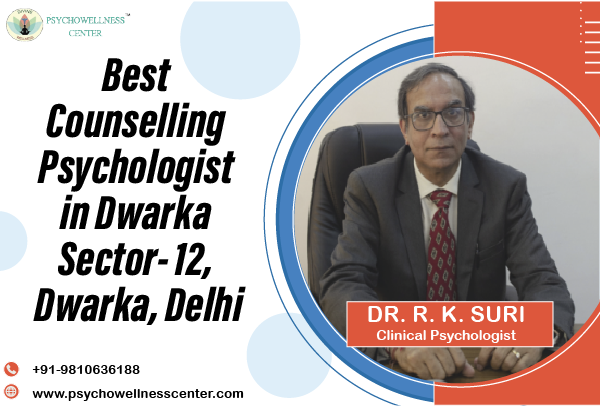Key Stages of Trauma Recovery Process
.png)
Understanding the stages of trauma recovery is essential for individuals looking to navigate their path toward healing. Trauma can disrupt a person’s sense of safety, self-worth, and even their ability to trust others. However, recovery is a gradual process that unfolds in stages, each with unique challenges and growth opportunities. Below are the key stages in the trauma recovery process, along with a brief explanation.
What Are the Stages of Trauma?
- Safety and Stabilization
- Processing the Trauma
- Reconnection
- Integration and Meaning-Making
- Ongoing Growth and Resilience
Safety and Stabilization:- Creating a sense of security and stability is the first step in trauma treatment. This is crucial because trauma often disrupts an individual’s sense of security. In this phase, individuals focus on creating a safe environment, both physically and emotionally. This may involve identifying triggers and developing coping strategies to manage overwhelming feelings. Grounding techniques, such as mindfulness and breathing exercises, can be particularly effective in helping individuals regain a sense of control. By prioritizing safety, individuals can begin to lay the groundwork for further healing.
- Processing the Trauma:- Once individuals feel safe, they can begin to process the trauma itself. This stage often involves therapeutic interventions, such as cognitive-behavioral therapy (CBT) or Eye Movement Desensitization and Reprocessing (EMDR). During this phase, individuals confront their memories and feelings associated with the trauma. This processing can be challenging, as it requires delving into painful experiences. However, it is a vital step in understanding how trauma affects one’s life and emotions. By working through these feelings, individuals start to lessen the trauma's grip on their daily lives.
- Reconnection:- Reconnection is about rebuilding relationships and fostering connections with oneself and others. After trauma, individuals may feel isolated or disconnected from their social circles. This stage encourages individuals to engage with supportive friends, family, or support groups. Reconnecting with hobbies and interests can also be beneficial. This phase emphasizes the importance of social support in recovery, as relationships can provide comfort, validation, and a sense of belonging. Building these connections can help individuals regain a sense of normalcy and community.
- Integration and Meaning-Making:- In the integration and meaning-making stage, individuals begin to weave the trauma into their life narrative. This involves reflecting on how the experience has shaped their beliefs, values, and identity. People may investigate issues of resilience and purpose in an effort to give their suffering meaning. This stage can lead to personal growth, as individuals often emerge with a deeper understanding of themselves and their capabilities. The process of integration helps individuals reclaim their stories, transforming their trauma into a part of their life journey rather than a defining feature.
- Ongoing Growth and Resilience:- The final stage focuses on ongoing growth and resilience. Even after significant progress has been made, recovery is an ongoing process. Individuals may continue to develop coping strategies and engage in self-care practices. This phase encourages individuals to embrace lifelong learning and personal development. Building resilience helps people get ready for pressures and obstacles in the future. The skills learned throughout the recovery journey can empower individuals to lead fulfilling lives, despite past traumas.
Mental Health Treatment for Trauma
Recovering from trauma is a multifaceted process that often requires a combination of therapy, medication, and lifestyle changes. Understanding these treatment options can empower individuals to seek the support they need. Here’s an overview of each approach:
Therapy
Therapy provides a secure environment for processing feelings and experiences, making it a vital component of trauma healing. Various therapeutic modalities can be beneficial:
- Cognitive Behavioral Therapy (CBT): The goal of cognitive behavioral therapy (CBT), is to alter negative thought and behavior patterns. It assists people in reframing how they perceive the trauma.
- Eye Movement Desensitization and Reprocessing (EMDR): A specialized therapy for trauma that involves processing distressing memories through guided eye movements, helping to reduce their emotional impact.
- Somatic Experiencing: This body-centered therapy addresses the physical sensations associated with trauma, aiming to release stored tension and restore balance.
- Group Therapy: Offers a helpful setting where people may exchange stories and gain knowledge from those going through comparable struggles.
2. Medication
- Medication can be an important part of trauma treatment, particularly for managing symptoms of anxiety, depression, or PTSD.
- It’s essential to work closely with a psychiatrist to find the most effective medication and monitor any side effects.
Lifestyle Changes
Making healthy lifestyle adjustments can greatly speed up the healing process. Here are some beneficial practices:
- Daily Exercise: Exercise can enhance mood, lower stress levels, and advance general well-being. Exercises like yoga and walking are very healthy.
- Healthy Nutrition: A balanced diet supports mental health.
- Mindfulness and Meditation: Being mindful can help people feel less anxious and stay grounded. Methods like gradual muscular relaxation, deep breathing, and meditation are useful resources.
- Adequate Sleep: Prioritizing sleep hygiene is crucial. Establishing a regular sleep routine can help mitigate the effects of trauma on sleep patterns.
- Social Support: It's critical to establish and preserve a solid support system. Making connections with loved ones, friends, or support groups helps ease emotional distress and lessen feelings of loneliness.
Conclusion
Trauma recovery is a complex journey that often requires a tailored approach combining Online counseling, medication, and lifestyle changes. Understanding these options empowers individuals to seek the help they need and take proactive steps toward healing. Keep in mind that everyone's recovery is unique, and what works for one person might not work for another. Seeking professional guidance is key to finding the most effective treatment plan. Professional Best Psychologists are prepared with interventions and evidence-based therapies designed especially to address symptoms associated with trauma.
Psychowellness Center in Delhi offers expert mental health services in Janakpuri, Palm, and Delhi NCR. Access online counseling with top psychologists today.
Contribution:- Find mental health support with Dr. (Prof) R K Suri clinical psychologist and Ms. Gurleen Kaur. Expert Counselling psychologist offering clinical and counseling services near you.
Reference




SHARE